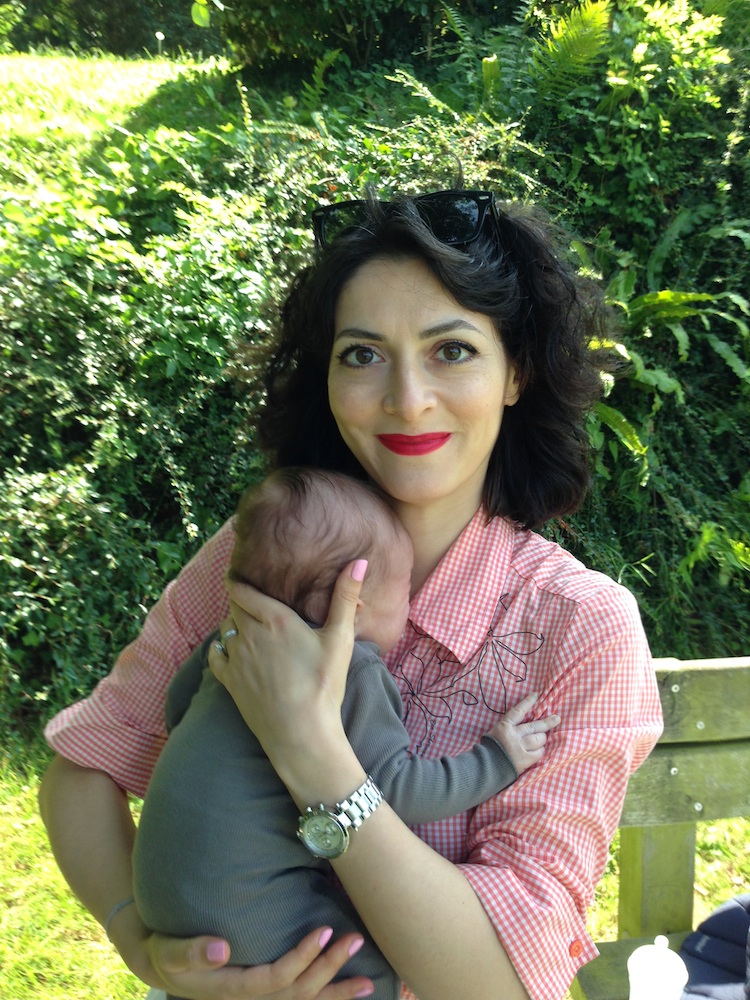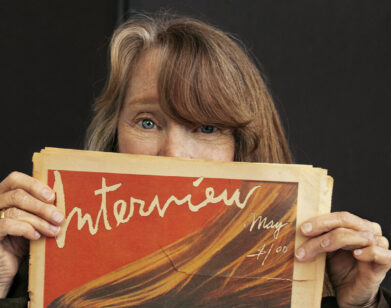Antoine Leiris’s Search for Transcendence
In a world of anodyne literature, Antoine Leiris’s You Will Not Have My Hate stands out like a flare in the night. The memoir takes its title from a Facebook post Leiris wrote two days after his wife, Hélène Muyal-Leiris, was killed at the Bataclan theater in Paris on November 13, 2015. It was an open letter, in which he directly addressed the terrorist gunmen responsible for the attack. “To respond to hatred by anger, that would be giving in to the same ignorance that has made you what you are.” The letter was shared millions of times across the world, and Leiris received messages, gestures of solidarity, and money from strangers.
Out earlier this week, You Will Not Have My Hate (Penguin Press) is a work of pure grace, a record of Leiris’s enduring love for Hélène, and a refusal to capitulate to anger, not only for himself but for the 17 month-old son, Melvil, he’d been left to father alone. It is an expression of commitment to the incomprehensibly difficult reality that had become his own. “This story is our story. To refuse it would be to betray it.”
When we spoke with Leiris, it was with some trepidation. There is a paradoxical privacy expressed in the book, which is intensely personal, without being confessional. Leiris is and was selective about the parts of his grief he is willing to expose, and so we talked about the words he had already so generously shared on the page. For You Will Not Have My Hate is ultimately a book about language and its necessity as a means not just of making sense of unspeakable tragedy, but of surviving it.
This conversation has been translated from French.
ALICE WHITWHAM: The book began after you posted a letter to the terrorists responsible for this tragedy on Facebook. Could you talk about what moved you to respond initially in so public a way?
ANTOINE LEIRIS: I didn’t think that the letter would become public. Not once did I ever imagine that. This letter came to me in this form, and I just wanted to share it with my family and close friends. I wanted to tell them that this was the path I had chosen to take with Melvil.
WHITWHAM: When did you realize this letter could be the basis for a longer work, a book, which could make such a difference to a wider, global audience?
LEIRIS: I wrote the book for the writing process itself. When I was alone in my room, I would feel suffocated by grief. I needed to breathe. Writing was an open door into a world of freedom. But at the same time, I didn’t just want to escape from my reality. Writing about what had happened to us allowed me to make the most of that freedom, and to do it with Hélène, with Melvil.
WHITWHAM: What was it like to get the response you did, to attract sympathy from people you didn’t know?
LEIRIS: It was strange at the start. Especially since I needed to protect my son and myself from the outside world. What mattered was that Melvil felt safe, even if it was just me at the house. So I had to filter this sympathy. I couldn’t take it all in at once. Today we are more open to this empathy, and it is good for us. In a world where everything has a price, the gift of the gestures of sympathy that people give to us is heartening.
WHITWHAM: In a chapter called “The End of the Story,” there is a moment where you describe kissing your son, before you abandon yourself to darkness. Your grief here is left off the page. You seem to me to a private person. How did you choose which parts of yourself to share, and which to protect, to keep to yourself?
LEIRIS: I tried to distinguish, and it’s not obvious—I’m not sure I succeeded—between what would be interesting to the reader, and what would merely provoke curiosity. The anecdotes that I tell should have meaning.
WHITWHAM: Before refuting it, you say that, “Not many people understand how I can so quickly get over the circumstances in which Hélène was killed.” Do you feel as though people expected you to feel hatred?
LEIRIS: That is, in any case, a question that people ask. What it is important to understand is that all of the questions that I have been asked about this event are in fact an echo of an inner discourse. If someone asks me if I don’t feel hatred it is because they have asked themselves the same question: “What would I feel in those circumstances, would I feel hatred?” As if to prepare themselves for the possibility that one day they will be affected by what only affects others.
WHITWHAM: It is interesting to me that you say that you started writing the book “the day after I posted the letter on Facebook, maybe even the same evening,” that this moment, though recent, could still be subject to the instability of memory. Why was it important to you to record this experience, to commit these twelve days to memory?
LEIRIS: I think that, beyond memory, I was searching for transcendence. The idea was not to remember exactly what had had happened but to transcend it while my memory was still vivid, while the memories hadn’t given way to fantasies. Everyone creates his own story, and it was important to me to construct it with words that could translate the intensity of the emotions I was living in that moment. If I had waited, I don’t know if I would have had the courage and the lucidity to dive back into that intensity.
WHITWHAM: It is an extraordinarily powerful moment when you become your son in the letter you read to Hélène at her funeral. Where did the impulse to become your son’s voice in that moment come from?
LEIRIS: He couldn’t be there and yet he had to be there.
WHITWHAM: There are many references to houses in the book, literal and figurative. The words in your head are like the neighbors playing music too loudly upstairs. You talk about letting a culprit for your anger in through “the open door.” Or at the end, when you describe leaving your apartment as a place where you no longer live. Could you talk a little bit about your choice of this metaphor?
LEIRIS : Since I became a father, this feeling of having to preserve a space, what you Americans would rightly call “home,” became an imperative. To create a space where our family felt safe, physically and emotionally—whether or not that space was really there where we live, or whether it was the space where our hearts met.
WHITWHAM: You describe writing these words as in some way liberating yourself from their noise, or “fighting” in your head. But they have brought you a lot of attention. Is it difficult to return to talking about this experience, to revisit it?
LEIRIS: I have fixed the boundaries of what I want to share. So I don’t feel any difficulty in speaking as long as the person in front of me talks about the words and what they mean. For having done that, I thank you.
YOU WILL NOT HAVE MY HATE (PENGUIN PRESS) IS OUT NOW.







